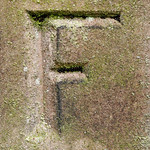What a difference ten years could make? Standing proudly at the horticultural fete, William remembered back to his youth in the old country. There he was in Enfield, a basic gardener learning the skills of weeding, pruning, growing seedlings and preparing the earth for growth of future plants and trees.
“First prize for a magnificent collection of pears goes to William Chandler.”
But by the early 1850s, he could see the demise of the market gardens where he worked and the build-up of residential housing. All because of the new railway making it so easy to get into London.
“First prize for a dish of Standwick nectarines goes to William Chandler.”
When he had the chance to come to Van Diemen’s Land in 1855, he took it very quickly. A chance for a new life in a new colony. No pollution, lots of new plants to study and maybe, just maybe, a chance for his own garden.
“William Chandler takes out three prizes for a dish of grapes.”
The past few years had seen a lot of changes in his life including marriage to his darling Caroline. They were so lucky to have her mother with them now that their family was growing.
“Second prize for collection of greenhouse plants goes to William Chandler.”
So here he was in Autumn of 1868, standing with his fellow Hobartian gardeners winning awards for those fruits and vegetables he had been growing with his own hands. Maybe not his own garden yet; that was going to be his future.
“Silver medal for collection of vegetables goes to William Chandler, gardener to his Excellency.”
Source:
1868 ‘AUTUMN, HORTICULTURAL FETE.’, The Mercury (Hobart, Tas. : 1860 – 1954), 1 April, p. 2. , viewed 24 Jan 2017, http://nla.gov.au/nla.news-article8851383

